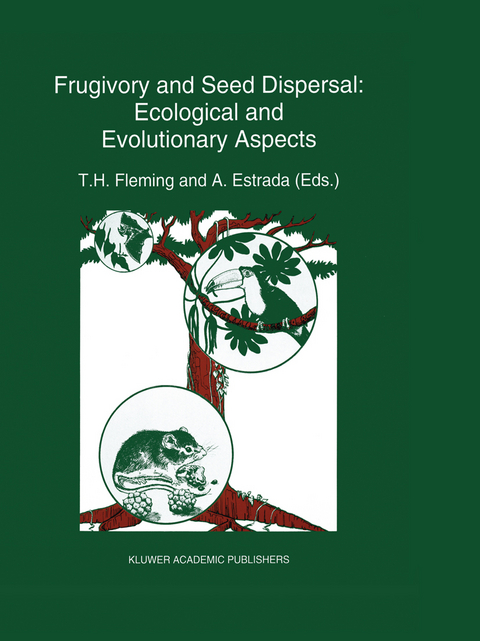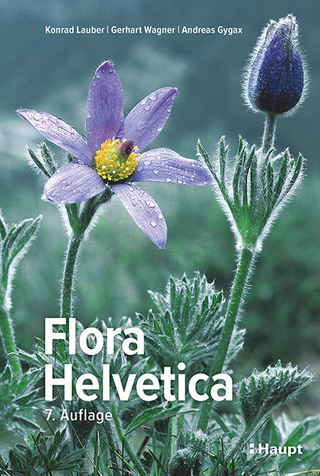
Frugivory and seed dispersal: ecological and evolutionary aspects
Springer (Verlag)
978-94-010-4767-8 (ISBN)
Specialized and generalized dispersal systems: where does ‘the paradigm’ stand?.- Quantity, quality and the effectiveness of seed dispersal by animals.- The population-dynamic functions of seed dispersal.- Consumption of fruits of the Melastomataceae by birds: how diffuse is coevolution?.- Speciation and coevolution: an interpretation of frugivory phenomena.- Geographical ecology and variation of plantseed disperser interactions: southern Spanish junipers and frugivorous thrushes.- Opportunism vs. specialization: the evolution of dispersal strategies in fleshy-fruited plants.- Consequences for seed distributions of intra-crob variation in wingloading of wind-dispersed species.- Evolutionary ecology of mast-seeding in temperate and tropical oaks (Quercus spp.).- Aspects of variation in a neotropical seed dispersal system.- Fruit size in a tropical tree species: variation, preference by birds, and heritability.- Spatial distribution of understory fruit-eating birds and fruiting plants in a neotropical lowland wet forest.- Weak interactions between avian and insect frugivores: the case of Pistacia terebinthus L. (Anacardiaceae).- Ecological and behavioral consequences of digestion in frugivorous animals.- The influence of seed packaging and fruit color on feeding preferences of American robins.- The influence of pulp lipids on fruit preference by birds.- Seed dispersal versus seed predation: an inter-site comparison of two related African monkeys.- Patterns of frugivore species richness and abundance in forest islands and in agricultural habitats at Los Tuxtlas, Mexico.- Dispersal mode seed shadows, and colonization patterns.- The influence of seed dispersal mechanisms on the genetic structure of tropical tree populations.- Soto-Castro, Seed rain and advancedregeneration in a tropical rain forest.- Monitoring seed dispersal at isolated standing trees in tropical pastures: consequences for local species availability.- The role of seed dispersal in the natural regeneration of rain forest after strip-cutting in the Peruvian Amazon.- Spatial scale and dispersion pattern of ant- and bird-dispersed herbs in two tropical lowland rain forests.- Removal of seeds from frugivore defecations by ants in a Costa Rican rain forest.- Predation by vertebrates and invertebrates on the seeds of five canopy tree species of an Amazonian forest.
| Reihe/Serie | Advances in Vegetation Science ; 15 |
|---|---|
| Zusatzinfo | XII, 392 p. |
| Verlagsort | Dordrecht |
| Sprache | englisch |
| Maße | 195 x 260 mm |
| Themenwelt | Naturwissenschaften ► Biologie ► Botanik |
| Naturwissenschaften ► Biologie ► Evolution | |
| Naturwissenschaften ► Biologie ► Ökologie / Naturschutz | |
| Weitere Fachgebiete ► Land- / Forstwirtschaft / Fischerei | |
| ISBN-10 | 94-010-4767-7 / 9401047677 |
| ISBN-13 | 978-94-010-4767-8 / 9789401047678 |
| Zustand | Neuware |
| Haben Sie eine Frage zum Produkt? |
aus dem Bereich


